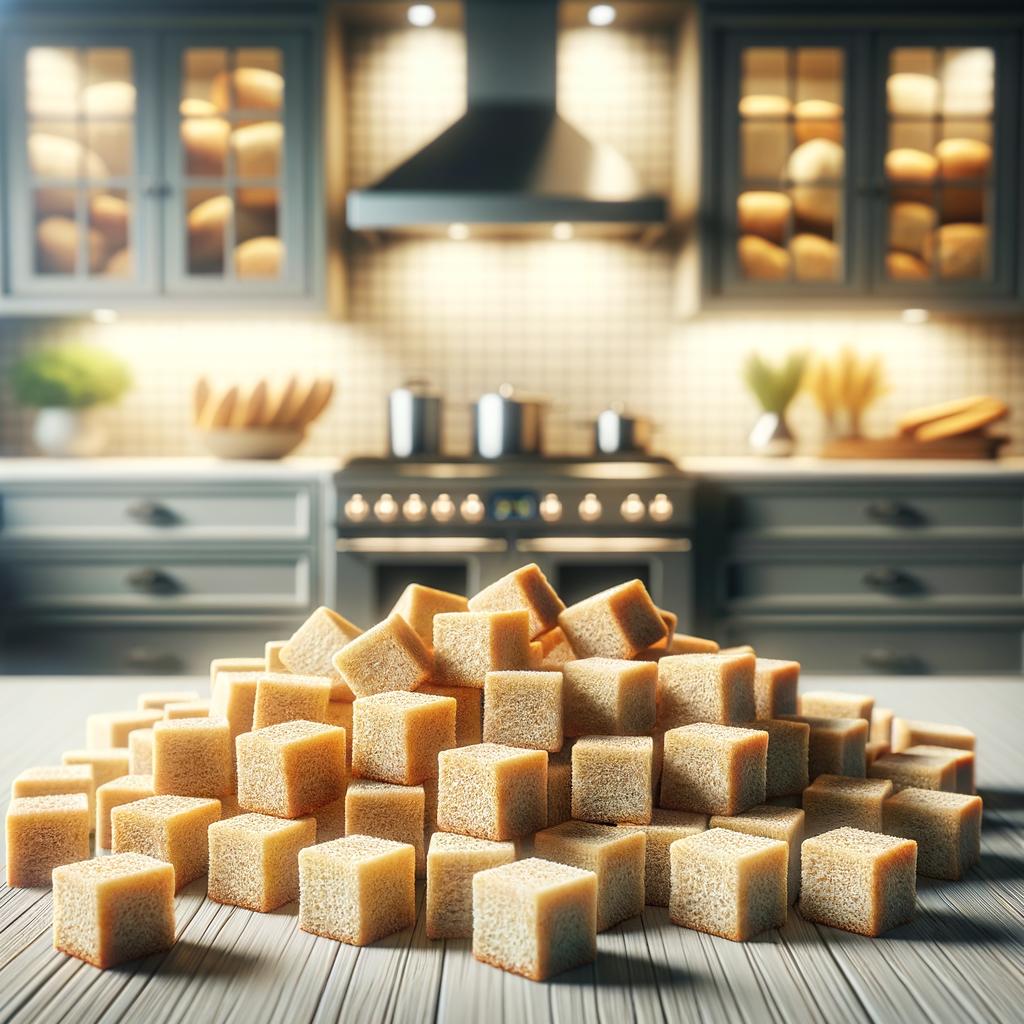Bread Cubes

Description
Bread cubes, as simple as they may seem, are a delightful ingredient that can transform a dish from ordinary to extraordinary. They are small, bite-sized pieces of bread that are typically toasted to a crunchy perfection. Their appearance varies based on the type of bread used, but they generally have a golden-brown hue with a rough, crumbly texture. The flavor profile of bread cubes is predominantly mild and slightly yeasty, although it can be enhanced with the addition of herbs, spices, or a drizzle of olive oil. What sets bread cubes apart is their ability to absorb flavors and add a satisfying crunch to various dishes, a quality unmatched by similar ingredients like croutons or breadcrumbs.
Primary Uses
Bread cubes are incredibly versatile and find their way into a multitude of dishes across various cuisines. They are a key component in classic recipes like stuffing, where they absorb the flavors of herbs, spices, and broth to create a comforting side dish. Bread cubes also add texture and substance to salads, soups, and casseroles. Beyond the culinary realm, bread cubes have a significant role in feeding birds during harsh winters, providing them with necessary carbohydrates for survival.
History
The history of bread cubes is intertwined with the history of bread itself, one of the oldest prepared foods dating back to the Neolithic age. While it's hard to pinpoint when bread was first cubed and used as an ingredient, it's safe to say that it was a practical solution to making use of stale bread. Over time, bread cubes have evolved from a mere food conservation method to a beloved ingredient in many traditional recipes. For instance, in the folklore of many cultures, bread cubes in soups and salads symbolize prosperity and abundance.
Nutritional Information
The nutritional profile of bread cubes largely depends on the type of bread used. Whole grain bread cubes are packed with dietary fiber, essential for a healthy digestive system. They also contain a good amount of B vitamins and minerals like iron and magnesium. Compared to similar ingredients like croutons, bread cubes often have less sodium and fat, especially if they're homemade. However, it's important to remember that while bread cubes contribute to a balanced diet, moderation is key due to their carbohydrate content.

